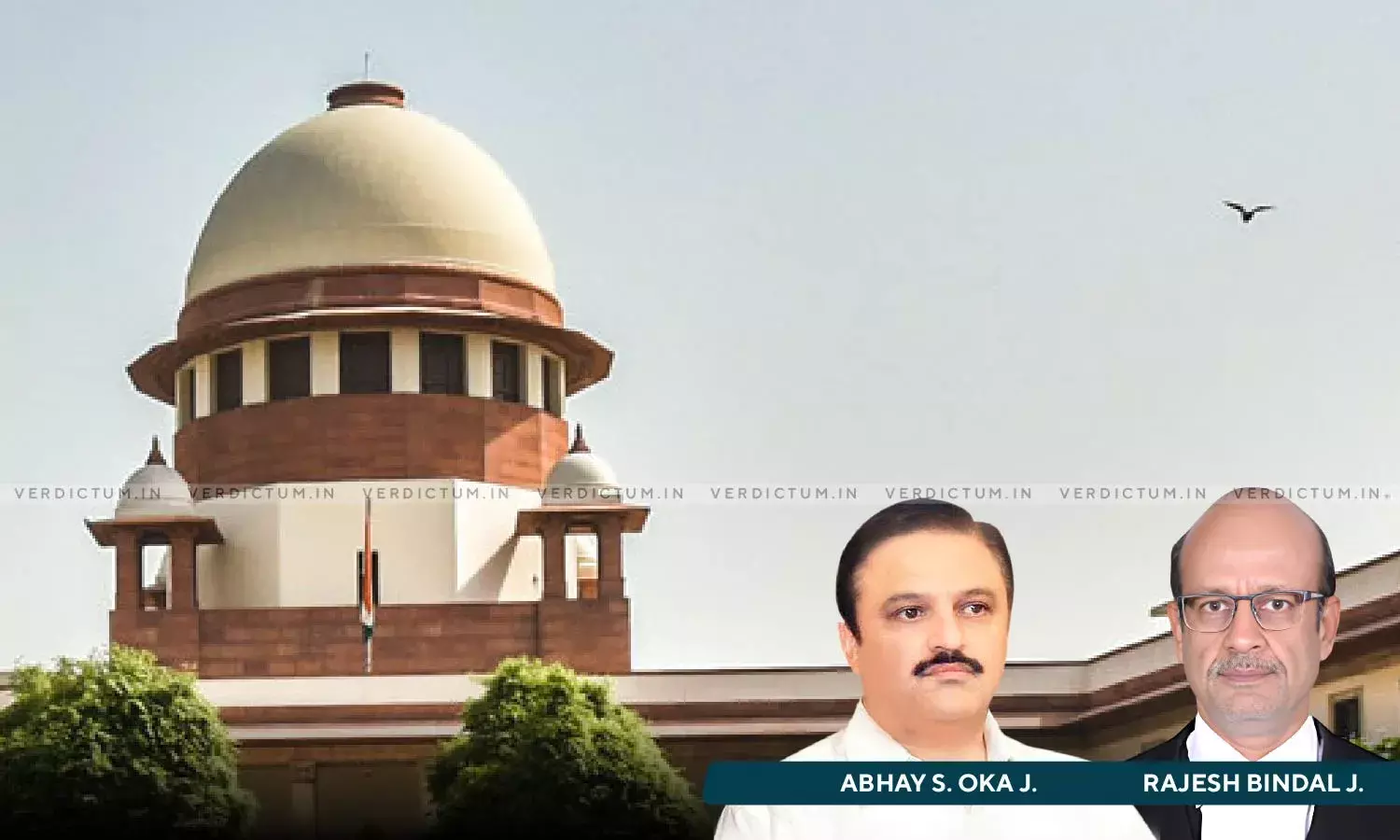When Evidence Has Not Been Recorded On The Issue HC Cannot Quash Charges On The Ground That Sanction U/S 197 CrPC Was Mandatory: SC

While dealing with a criminal appeal, the Supreme Court has observed that when the evidence has not been recorded over the contention that acts alleged were committed while acting in the discharge of official duty, there was no reason for the High Court to quash charges framed on the ground that sanction under Section 197 CrPC was mandatory.
The Bench of Justice Abhay S. Oka and Justice Rajesh Bindal observed that "...Looking at the nature of the allegations in the complaint, at this stage, it is impossible to conclude that the acts allegedly done by the first respondent were committed by her while acting or purporting to act in the discharge of her official duty. Therefore, at this stage, we cannot conclude that a sanction under Section 197 of Cr.P.C. was required. In the facts of the case, the final view on this issue can be taken only after the evidence is recorded. Therefore, there was no reason for the High Court to quash the proceedings at this stage on the ground that a sanction under Section 197 was mandatory.”
Advocate Rajeev Singh appeared for the appellants and Advocate Mrinal Gopal Elker appeared for the respondent.
Factual Background
The appellant’s wife had filed a complaint, based on which FIR was registered against the appellant and his family members for offences punishable under Sections 498A, and Section 506 read with Section 34 of Indian Penal Code, 1860 (IPC) as well as Section 3 read with Section 4 of the Dowry Prohibition Act, 1964.
On the registration of FIR, the respondent- Smt. Surekha Parmar, the then Asst. Sub Inspector (ASI) along with other police personnel went to arrest the appellant and his family members.
It was alleged by the appellants that the respondent entered the jurisdiction of another Police Station to arrest them. And, while arresting the appellants, the respondent along with others started abusing and beating the original appellant with kicks, fists and gave blows by danda.
Thereafter a complaint under Section 200 of CrPC was filed by the appellants before the Judicial Magistrate and cognisance of the offences punishable under Sections 147, 323, 342, 504 and 506B of the IPC was taken by the Judicial Magistrate based on the complaint and charges were framed.
A writ petition was filed by the respondent under Section 482 of CrPC for quashing the complaint, which was dismissed by the Madhya Pradesh High Court.
A Revision application was filed against the order of the Magistrate, which was also dismissed by the Sessions Court. Being aggrieved by the orders of the Magistrate and the Sessions Court, the respondent filed a petition under Section 482 of Cr.P.C. before the High Court.
The High Court proceeded to quash the charges framed against the first respondent on the ground that a prior sanction under Section 197 of Cr.P.C. was not obtained. This order of the High Court was challenged before the Apex Court.
The Apex Court said that on perusing the record and assertions made by the appellant in the complaint, it appeared that the respondent exceeded her authority and that alleged offences were committed by the respondent along with other personnel.
Moreover, the judgment of the High Court passed in the writ petition has become final and it has rightly held that it would be premature to hold that Section 197 of Cr.P.C. was a bar to the prosecution as the evidence had not been adduced in the complaint, said the Court.
Accordingly, the judgment of the High Court was set aside and the order of the Trial Court of framing charges was restored.
Cause Title- Dr. S.M. Mansoori (dead) thr. L.R. V. Surekha Parmar & ors.

